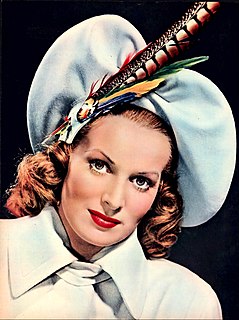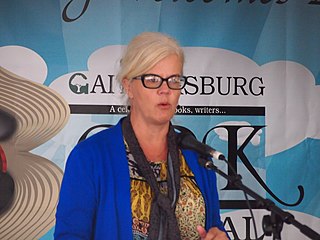A Quote by Rebecca West
She did not suddenly start being disagreeable this afternoon, she was so good at it, she had evidently practised whatever are the scales and arpeggios of rudeness every day of her life.
Related Quotes
At that moment a very good thing was happening to her. Four good things had happened to her, in fact, since she came to Misselthwaite Manor. She had felt as if she had understood a robin and that he had understood her; she had run in the wind until her blood had grown warm; she had been healthily hungry for the first time in her life; and she had found out what it was to be sorry for someone.
And she [Eleanor Roosevelt]loves being a star. And she loves being a teacher and a leader and a mentor and a big friend. Also, she's tall. She's one of the tallest girls in the school. And she's an athlete. And she writes many years later, at the end of her life, she writes that the happiest day, the happiest single day of her life was the day that she made the first team at field hockey. And I have to say, as a biographer, that's the most important fact. I
Being an Irishwoman means many things to me. An Irishwoman is strong and feisty. She has guts and stands up for what she believes in. She believes she is the best at whatever she does and proceeds through life with that knowledge. She can face any hazard that life throws her way and stay with it until she wins. She is loyal to her kinsmen and accepting of others. She's not above a sock in the jaw if you have it coming.
Day and night she had drudged and struggled and thrown her soul into her work, and there was not much of her left over for anything else. Being human, she suffered from this lack and did what she could to make up for it. If she passed the evening bent over a table in the library and later declared that she had spent that time playing cards, it was as though she had managed to do both those things. Through the lies, she lived vicariously. The lies doubled the little of her existence that was left over from work and augmented the little rag end of her personal life.
She suddenly understood why she had let him kiss her in the diner, why she had wanted him at all. She wanted to control him. He was every arrogant boyfriend that had treated her mother badly. He was every boy that told her she was too freaky, who had laughed at her, or just wanted her to shut up and make out. He was a thousand times less real than Roiben.
You had every right to be. He raised his eyes to look at her and she was suddenly and strangely reminded of being four years old at the beach, crying when the wind came up and blew away the castle she had made. Her mother had told her she could make another one if she liked, but it hadn't stopped her crying because what she had thought was permanent was not permanent after all, but only made out of sand that vanished at the touch of wind and water.
The tears that kept Buttercup company the remainder of the day were not at all like those that had blinded her into the tree trunk. Those were noisy and hot; they pulsed. These were silent and steady and all they did was remind her that she wasn’t good enough. She was seventeen, and every male she’d ever known had crumbled at her feet and it meant nothing. The one time it really mattered, she wasn’t good enough.
The doctor's wife wasn't a bad woman. She was sufficiently convinced of her own importance to believe that God actually did watch everything she did and listen to everything she said, and she was too taken up with rooting out the pride she was prone to feeling in her own holiness to notice any other failings she might have had. She was a do-gooder, which means that all the ill she did, she did without realizing it.
Dena had always been a loner. She did not feel connected to anything. Or anybody. She felt as if everybody else had come into the world with a set of instructions about how to live and someone had forgotten to give them to her. She had no clue what she was supposed to feel, so she had spent her life faking at being a human being, with no idea how other people felt. What was it like to really love someone? To really fit in or belong somewhere? She was quick, and a good mimic, so she learned at an early age to give the impression of a normal, happy girl, but inside she had always been lonely.
But what I kept wondering about is this: that first second when she felt her skirt burning, what did she think? Before she knew it was candles, did she think she'd done it herself? With the amazing turns of her hips, and the warmth of the music inside her, did she believe, for even one glorious second, that her passion had arrived?


































